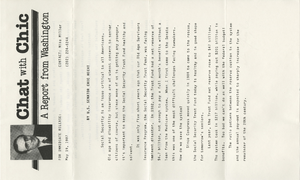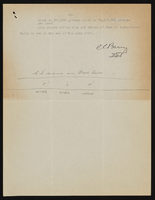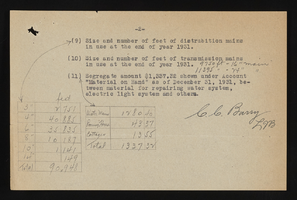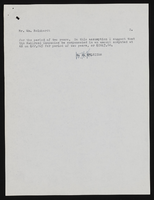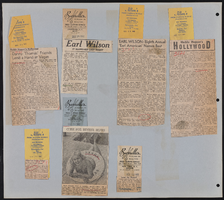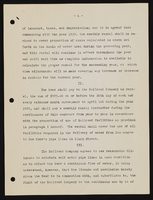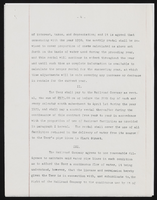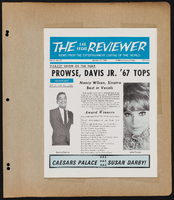Search the Special Collections and Archives Portal
Search Results

Transcript of interview with Jerome "Jerry" Jay Vallen by Lisa Gioia-Acres, October 2, 2007
Date
2007-10-02
Archival Collection
Description
Jerome Jerry Jay Vallen was born and grew up in Philadelphia, Pennsylvania. His father was in the restaurant business and Jerry worked for him throughout his teens and young adulthood. He and his two brothers entertained themselves during their childhood years by going to the library and reading. This was a legacy of the Depression era, when there simply wasn't any money to spare for extraneous expenses. Jerry's first jobs were bellman / assistant manager in a small hotel; auditor, and then property manager at the Pine Tree Point Club. He attended Penn State for a year (working in his dad s restaurant the whole time) and then transferred to the hotel school at Cornell University. After a stint in the armed forces during the Korean War, he returned home and used the GI bill to finish his master's degree. He started on his doctorate, but it would be 20 years before he completed it. After getting married (1950) and starting a family, Jerry and his wife Flossie realized that the restaurant business and family life did not mix well, so he decided to stay in education. Fie spent several summers at the University of Pennsylvania in their graduate school of business and in 1966, interviewed with Jerry Crawford, provost at UNLV. Jerry and his family moved out to Las Vegas in June of 1967, leaving northern New York during a blizzard and arriving four days later in southern Nevada to find tulips blooming. They decided they liked Las Vegas, found a house right away, and settled in to their new life. Jerry taught marketing in the hotel college at the beginning of his career and for several years thereafter. Boyce Phillips took the rooms division and George Bussel taught foods. Their main focus was to attract students, and they worked on making it easier tor students to transfer from out of state. Jerry also thought it was extremely important that the hotel college be independent of university administration control. Dr. Vallen has 5 or 6 books published, including 3 textbooks that he continues to update, and an oral history of the hotel college completed shortly after he retired in 1989. Today he and his wife travel and enjoy twice yearly gatherings with their family.
Text
Pagination
Refine my results
Content Type
Creator or Contributor
Subject
Archival Collection
Digital Project
Resource Type
Year
Material Type
Place
Language
Records Classification

